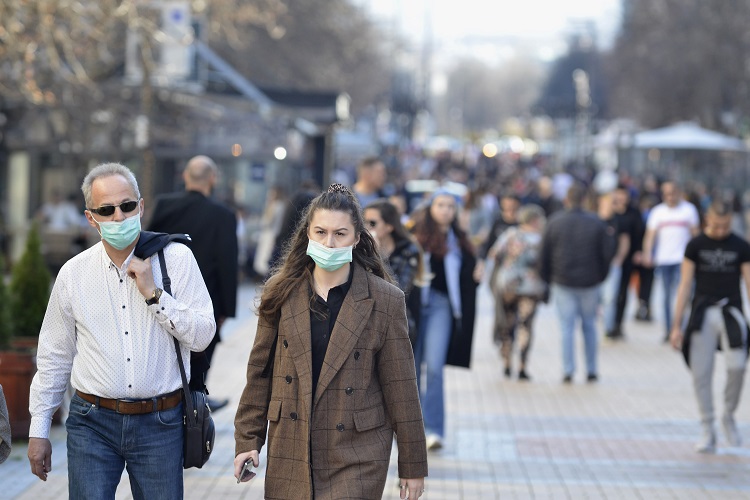Covid-19 and public compliance

A new study, led by the University of St Andrews, sheds fresh light on the conditions under which people in groups follow the behaviour of others, which can help understand human behaviour in relation to Covid-19 restrictions.
The new research, in collaboration with the University of Sussex and University College London and published in the journal PLOS ONE (Friday 30 October), reveals that copying others’ behaviour depends on shared group membership. Traditionally it has been assumed that this is a rather mindless and automatic process which has been called ‘contagion’. However, the new study, led by Dr Fergus Neville and Professor Stephen Reicher, both from the University of St Andrews, reveals that things are not that simple – people do not follow just anyone.
The interactive experiment, which took place at the Science Museum in London, revealed that people will follow other in-group members, whose behaviour they believe to be relevant for their own. An in-group is a social group to which a person psychologically identifies as being a member. Over one thousand participants voluntarily took part in the experiment. Each person had the ability to control a dot on a shared screen using a mobile phone or tablet. This meant that groups of participants could take part in virtual collective tasks such as following a maze. During the study participants were split into blue and red groups based on a bogus personality test. The researchers added fake blue and red dots which were pre-programmed to act in specific ways, and then examined whether participants mimicked the actions of these dots.
The results showed that participants mimicked the behaviour of others. However, participants only copied the behaviour of fellow ‘in-group’ members (i.e., dots who shared their group’s colour) and not ‘out-group’ members (i.e., dots who did not share their group’s colour). Moreover, participants did not copy others if the task was irrelevant to their group membership.
The findings suggest that mimicry is not passive or automatic, and that other group members are diagnostic of how one should act oneself.
The conclusions of this research have important implications for designing behavioural interventions and could be significant in understanding human compliance in relation to Covid-19 restrictions.
Lead researcher Dr Fergus Neville, lecturer in the School of Management at the University of St Andrews, said: “The results from this study help to explain the variability in social imitation during emergency evacuations, such that people are more likely to be influenced by those who they see as fellow group members.”
Moreover, as Professor Stephen Reicher from the School of Psychology and Neuroscience, explained: “The fact that people are more likely to imitate others who they regard as ‘in-group’ is critical for maximising public compliance with safety protocols during the Covid-19 pandemic. If the public see those who are providing them with guidance as ‘we’ instead of ‘they’, adherence to public health measures will be much higher.”
The research was funded by the ESRC (Economic and Social Research Council).
Professor Reicher advises both the UK and Scottish Governments on Covid-19.
The paper Self-categorization as a basis of behavioural mimicry: Experiments in The Hive is published in PLOS ONE and is available online.
Please ensure that the paper’s DOI (doi.org/10.1371/journal.pone.0241227) is included in all online stories and social media posts, and that PLOS ONE is credited as the source.
Issued by the University of St Andrews Communications Office.